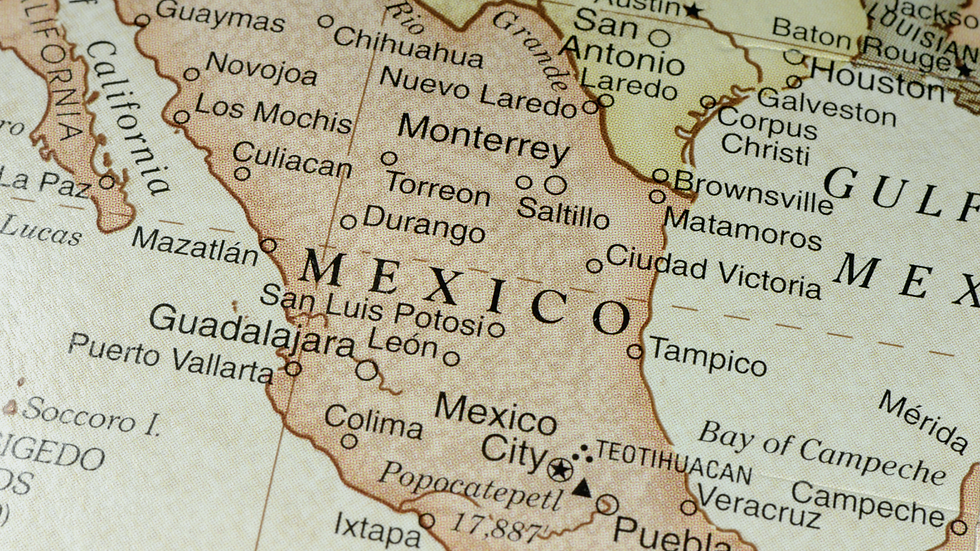Living in Mexico: A Dream for Some, a Tax Burden for Others
- Marc Saad | International Lawyer
- Nov 21, 2024
- 3 min read
Updated: Nov 25, 2024
Mexico has long been a magnet for expats, known for its rich culture, natural beauty, and affordability. While many see the country as an ideal place to live, its tax system can be a significant benefit for some and a limitation for others, depending on one's circumstances. Understanding the nuances of Mexico’s tax laws is crucial, particularly for those with significant global income.

Why Mexico is a Haven for Many
For individuals with modest incomes, Mexico’s progressive tax system can be highly attractive. Lower earners enjoy relatively low tax rates.
Mexico also offers a special tax program for small businesses and freelancers earning less than about $170,000 USD per year (gross income). This program simplifies tax filing and offers significantly lower tax rates, ranging from 1% to 2.5%, compared to the standard rates of up to 35%. It’s an excellent option for small businesses looking to save on taxes and reduce paperwork.
Beyond its tax advantages, Mexico’s appeal extends to its welcoming atmosphere for retirees, digital nomads, and remote workers. With affordable healthcare, a relatively low cost of living, and several lifestyle perks, Mexico can offer a fulfilling life for those earning at moderate levels. Additionally, direct flights to and from major cities worldwide make travel to the U.S., Canada, and Europe seamless for expats.
While Mexico offers many advantages, it’s important to be mindful of potential downsides. Crime rates differ significantly across cities and neighborhoods, so researching and choosing a secure location is essential. Another small downside is the taxi mafia problem in many areas. Traditional taxi groups resist platforms like Uber and enforce their dominance through violence and control of prices, which are frequently higher due to their monopoly. This limits competition and convenience for residents and travelers, especially in cities where these groups dominate the transportation market.
Despite these issues, many expats still find Mexico extremely appealing, especially for its favorable tax system designed to support small businesses.
A Tax Trap for the Wealthy
The story shifts dramatically for high earners. Mexico taxes residents on their worldwide income, meaning if you live in Mexico and qualify as a tax resident, your global earnings are subject to Mexican taxation—similar to countries like Canada.
For those in higher income brackets, tax rates increase significantly. While still competitive compared to some countries, they approach levels that make Mexico much less appealing for wealthy individuals. Entrepreneurs and investors who make a lot of money, especially from sources outside Mexico, might find that the taxes they have to pay in Mexico outweigh the advantages of living there. Personal income exceeding about $220,000 USD is taxed at a steep 35%, while incorporated businesses are subject to a 30% flat corporate tax rate.
Even if someone lives in Mexico for less than six months per year, the center of vital interest rule could still make them a tax resident. Historically, the rules have not been enforced for individuals on tourist visas, but with a new socialist president in office, relying on this leniency could be risky. There’s an increasing possibility of retroactive enforcement, making it essential to carefully evaluate your situation before committing to a move.
Territorial Tax Countries: A Better Fit for Wealthy Remote Earners
For remote workers, entrepreneurs, and investors seeking to minimize taxes, territorial tax countries can be a better option. These countries only tax income earned within their borders, leaving foreign income untouched. With the right legal setup, individuals working remotely can often pay little to no taxes on foreign income, regardless of how much they earn. This makes these countries particularly attractive for high earners—unlocking the potential to retain nearly all their profits.
As of 2024, popular Latin American countries with territorial tax systems include Costa Rica, Panama, Paraguay, Nicaragua, and others.
Conclusion
Ultimately, the decision to move to Mexico—or elsewhere—depends on your priorities. For high earners seeking low taxes and family-friendly environments, destinations like Costa Rica might be a better fit than Mexico. Choosing where to live as an expat isn’t just about the charm of a place—it’s about finding the perfect balance between financial freedom, personal safety, and quality of life.
Disclaimer: The content in this article is simplified for general informational purposes and does not apply to all situations. Readers should not make or refrain from making any decisions based on this information without first consulting a qualified professional. For personalized advice on your situation, we invite you to schedule a free consultation at the bottom of this page.
